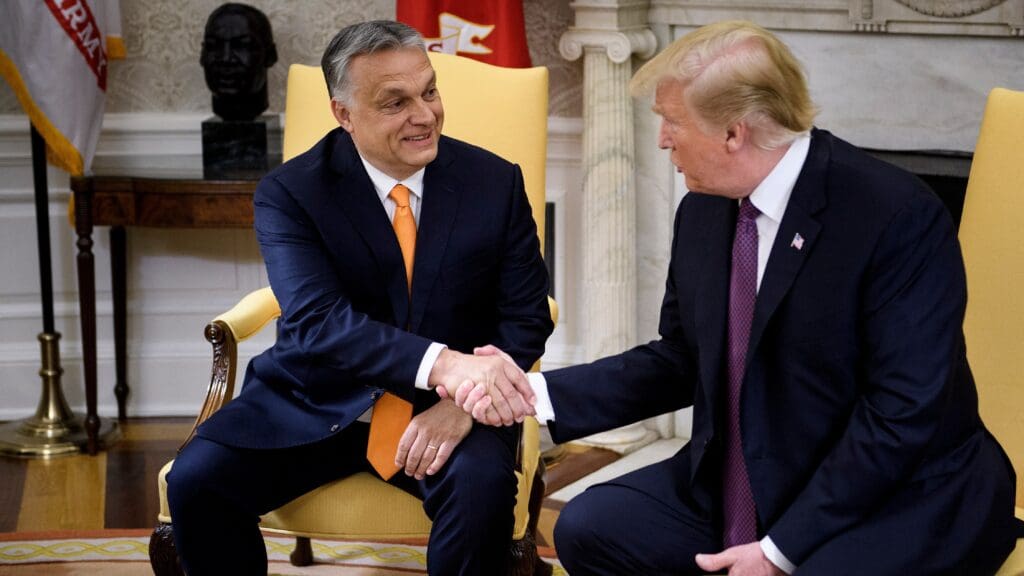This article was published in Vol. 2 No. 5 of the print edition
This article is about the effects of the global minimum corporate tax on the Visegrád countries. It is clear that the region is divided, as Hungary and Poland strongly oppose its introduction, while the Czech Republic and Slovakia are in favour of it. A homogeneous tax would create a certain order in the taxation of multinational corporations, but for the Visegrád countries it could be a drag on economic development. If it is accepted, the countries in question will have to find other ways of attracting foreign capital.
Back in the early 1900s, corporate taxation was not a headache either for the companies themselves or the tax authorities, as taxes were paid where the goods were produced and where the value-added was created. The basic rule was quite simple: the amount of tax to be paid depended on the geographical location of the corporation.
However, the landscape has changed quite a lot since then, as the various waves of globalization have contributed to the relocation of production across the globe. As of today, we normally consume products and services produced in far-away countries and regions,1 and it is quite difficult to get a full picture on where multinational corporations pay taxes and generate revenues. From time to time, multinational enterprises turn to various
options like transfer pricing, moving their taxable profit from one country to another, or manipulating their taxable revenues, because the landscape of corporate income tax is still very varied, with remarkable differences across international borders. The global technology companies can jump over these borders, and partly because of this they are the number one scapegoats when it comes to tax evasion. They are able to generate significant revenues without a physical presence, and can generate impressive income without being taxed at all.2
According to the timetable, the harmonized tax rate would be applied from 2023 at a rate of 15 per cent
The introduction of a global minimum corporate tax was originally planned to make the significant differences in taxation less pronounced. According to the timetable, the harmonized tax rate would be applied from 2023 at a rate of 15 per cent. This is not a bolt from the blue, as the effective taxation of businesses and digital businesses was first proposed by the OECD in 2018. This suggestion led to further discussions, and the idea of a global minimum tax was born as the second pillar of a fairer public tax system. The first pillar provides that global tech giants are taxed in the place where they carry out their activities. With these two measures in operation, it would be clear that there will be less and less opportunity for multinational companies to lower taxes by shifting profits and eroding their tax base.
Certain countries, both developing and developed, are closely watching the introduction of the global minimum tax, as for them a low corporate income tax policy is almost the only option when it comes to making their economies attractive. By granting generous tax relief, they attract investors, thus gaining better access to technology and innovation. Also, they can create jobs and increase their embeddedness in the global value chains.
Immediately after the political and economic changes that occurred in Central and Eastern Europe in 1989, and particularly in the Visegrád Region, this was one of the most promising options, and the Czech Republic, Hungary, Poland, and Slovakia started creating a business-friendly environment with relatively low corporate income taxes, hefty tax rebates, and exemptions. Coupled with low-cost and disciplined workforces and relatively good infrastructure, this policy paid off, as first Hungary and later Poland managed to attract a lot of direct foreign investment, while the Czech Republic and Slovakia also managed to attract substantial foreign capital. After the turn of the millennium, Central and Eastern Europe succeeded in playing an increased role in product manufacturing, thus demonstrating that the region’s governments had chosen a viable option and a good development path. The progress made in the automotive industry is especially telling, as the Czech Republic, Hungary, and Slovakia bear the nickname of the Detroit of Central and Eastern Europe. This clearly indicates the size and importance of the sector.
Currently these countries are keeping a close eye on the final implementation of the global minimum tax, either because they are or are not satisfied with the concept. First of all, we have to highlight that the Czech Republic and Slovakia are not against the new policy, as they are deeply embedded in the German supply chain. They maintain relative closeness to their export markets and are extremely open when it comes to international trade, not to mention their lower labour costs. Currently, the standard Slovakian corporate tax rate is 21 per cent, but in case of micro-taxpayers a rate of 15 per cent applies.
The Czech corporate income tax rate is 19 per cent, and applies to all business profits. Both rates are above the proposed rate of 15per cent. Currently the Czech Republic holds the presidency of the Council of the EU and it is quite clear that during this mandate the decision-makers will try to reach an agreement on the EU rules for a global minimum tax levied on large multinational corporations. It seems that these two economies no longer believe in the efficiency of the low corporate income rates only, and are ready to adopt a homogeneous solution. Furthermore, these economies deem that there is limited room for manoeuvre left for corporate income taxation in relation to the business environment.
There are two countries at the other end of the spectrum: Hungary and Poland. The corporate income tax rate in Hungary is by far the lowest in the European Union, at 9 per cent. The current Hungarian government is continuing its low-tax policy when it comes to personal and corporate income taxation, and in general it has reduced a large number of taxes. It seems that the economic policy follows a classic textbook case: low taxes attract investors, tax breaks grease the wheels of decision-making, and the country benefits from the influx of new technologies, managerial skills, and workplaces, as well as from better connections to the world economy. Many criticize this approach, claiming that this benefits only the largest multinational corporations, and almost nothing is left for the small and medium-sized enterprises. An increase from 9 to 15 per cent would be quite remarkable at any time, but the timing makes it especially so. The beginning of an armed conflict in Europe at the end of February 2022, and the many related and non-related economic difficulties, drastically changed the overall landscape. According to the Hungarian government, the introduction of a minimum tax is an unacceptable measure in these circumstances, and at the EU level the country is threatening to use its veto.
The global minimum tax would have a negative impact on the economy, competitiveness, and the number of jobs in Hungary
As economic policy-makers argue, the global minimum tax would have a negative impact on the economy, competitiveness, and the number of jobs in Hungary, as well as in the EU as a whole. Hungary also criticizes another, related plan: a more transparent and efficient taxation system for large, digital technology companies. This had previously been promised, but for certain (mainly political) reasons it was later forgotten. Shortly after the definitive resolution of Hungary in July 2022, the US terminated a tax treaty which had been intended to avoid the risk of double taxation between the two states. It had been in effect since 1979. This seems to have been a political threat by which the US tried to influence decision-makers. This is in line with the attitude of the Biden Administration, which has already labelled Hungary a tax heaven for multinational corporations.
Hungary is not alone in opposing the idea of a global minimum corporate tax in the EU: Poland’s standpoint is essentially the same. The Warsaw government argues that with the global deal, Poland will have to find other ways to attract foreign investors. As in every Visegrád country since the 1990s, the Polish tax system has been offering tax breaks. Poland has been trying to entice investments in new technologies and innovations by bettering the business climate through incentives and tax rebates. For many other countries in the region, this seems to be the main weapon and advantage. When the EU finally adopts the global minimum corporate tax as a kind of compensation, Poland will definitely want to be certain that the global minimum tax will be accompanied by tax changes in the case of digital giants. Polish opposition is an obvious headache for the implementation of a global deal, and the US Treasury Secretary Janet Yellen made a trip to Warsaw in the hope of convincing the Polish officials in May 2022. At this point we have to bear in mind that the EU directives have to be backed by every single member state. Poland wants to receive more government rights to tax the local operations of the largest companies. Hungary wants to scrap the idea of global minimum corporate taxes completely. However, it is not entirely clear whether the US Congress would finally back the amendment of the international treaty mechanism. Also, we have to note that the EU may implement the global minimum tax by means of enhanced cooperation which means bypassing the Hungarian veto. In this case at least ten countries will have to approve the new measure. According to the latest news, five key EU member countries seem to be committed to phasing in the global minimum corporate tax in 2023. These countries are Germany, France, Italy, Spain, and the Netherlands.3
It is quite obvious that these economies already have a competitive business climate, and they may attract a lot more foreign direct investment once the corporate income tax is lowered. However, we have to highlight the fact that the level of corporate income tax is only one element of the business environment. By reducing the rate, countries can indeed attract more investors into their economies, but many other factors also play a crucial role: infrastructure, market potential, corruption, the rule of law, transparency, institutions, trust, and labour-related costs. So, setting a competitive corporate income tax is only one building block and an important first step, but does not amount to the entirety of the business environment.
The divisions among the Visegrád countries indicate that the decision-makers are divided about the role of corporate taxes in making their economies competitive. Currently Hungary and Poland are trying to improve the business environment by lowering taxes, among other measures, and oppose the new regulation, but the Czech Republic and Slovakia deem that their economies will attract sufficient foreign capital in the case of a uniform global minimum corporate tax as well. Taking everything into consideration, we can say that the global minimum corporate tax may slow down the catching up of Central and Eastern Europe, and several governments will have to find new ways of keeping their economies attractive.
NOTES
1 Richard Baldwin, The Great Convergence (Belknap Press, 2016).
2 Paul R. Krugman and Maurice Obstfeld, International Economics (11th edition, Pearson, 2018).
3 ‘Five Big EU States to Implement Minimum Corporate Tax If No EU Deal’, Reuters
(9 September 2022), www.reuters.com/markets/ europe/five-big-eu-states-implement-minimum- corporate-tax-if-no-eu-deal-2022-09-09/.






